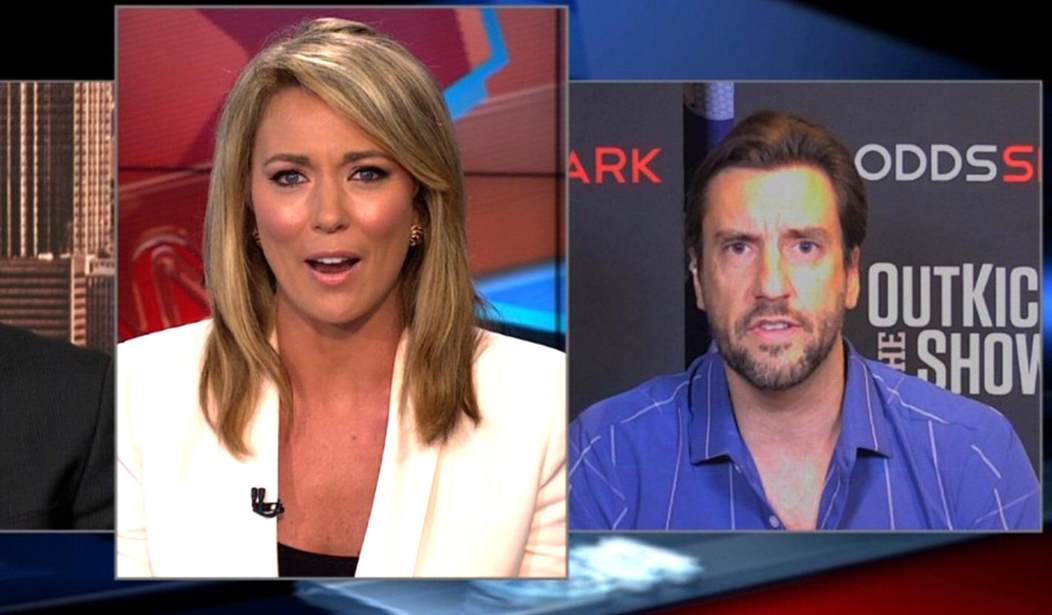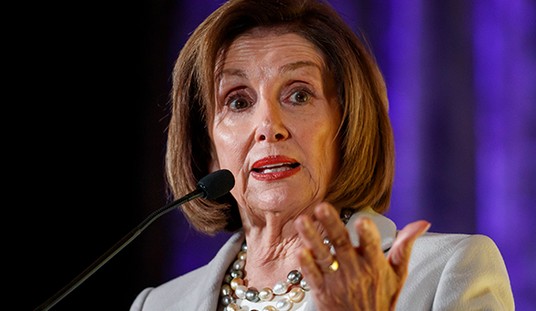ARLINGTON, Va. — President Trump said that though his “original instinct was to pull out” of Afghanistan over frustration with the course of the 16-year war there, his advisers convinced him that “the consequences of a rapid exit are both predictable and unacceptable.”
Trump did not divulge troop levels in his prepared primetime remarks in front of soldiers at Fort Myer this evening, but reports indicate 4,000 more U.S. troops would head to the country. At the peak of the Afghanistan surge, in the Obama era, more than 100,000 U.S. troops were there; that was down to around 8,400 when President Obama left office.
Trump also said that “perhaps it will be possible to have a political settlement that includes elements of the Taliban in Afghanistan,” a continuation of the Obama-era policy of wanting to negotiate with the Taliban. The Obama administration refused to brand the Taliban, a stalwart al-Qaeda partner, as a foreign terrorist organization so that negotiations would be open. The Taliban killed two U.S. soldiers in a car bombing this month.
“A hasty withdrawal would create a vacuum for terrorists, including ISIS and al-Qaeda, [to] instantly fill just as happened before Sept. 11. And as we know, in 2011, America hastily and mistakenly withdrew from Iraq. As a result, our hard-won gains slipped back into the hands of terrorist enemies. Our soldiers watched as cities they had fought for and bled to liberate, and won, were occupied by a terrorist group called ISIS,” Trump said. “The vacuum we created by leaving too soon gave safe haven for ISIS to spread, to grow, recruit, and launch attacks. We cannot repeat in Afghanistan the mistake our leaders made in Iraq.”
“…But one way or another, these problems will be solved. I’m a problem-solver. And in the end, we will win.”
In a change from the Obama administration’s timetables that were subject to alteration near the expiration date, Trump said that “conditions on the ground, not arbitrary timetables, will guide our strategy from now on.”
“Pakistan has much to gain from partnering with our effort in Afghanistan. It has much to lose by continuing to harbor criminals and terrorists. In the past, Pakistan has been a valued partner. Our militaries have worked together against common enemies. The Pakistani people have suffered greatly from terrorism and extremism. We recognize those contributions and those sacrifices,” the president continued. “But Pakistan has also sheltered the same organizations that try every single day to kill our people. We have been paying Pakistan billions and billions of dollars at the same time they are housing the very terrorists that we are fighting. But that will have to change. And that will change immediately.”
Defense Secretary James Mattis, who was integral in the “rigorous interagency review” that crafted the South Asia strategy, said in a statement that he’s directed the chairman of the Joint Chiefs of Staff “to make preparations to carry out the president’s strategy.”
“I will be in consultation with the Secretary General of NATO and our allies — several of which have also committed to increasing their troop numbers,” Mattis said. “Together, we will assist the Afghan Security Forces to destroy the terrorist hub.”
The ranking member on the Senate Foreign Relations Committee, Ben Cardin (D-Md.), said he’s “very concerned that President Trump has devolved significant authority in Afghanistan to the secretary of Defense,” as “the leadership of the Department of Defense should certainly inform the process, but the president is the commander in chief and should take full responsibility for any decision to deploy our brave service members.”
The strategy drew praise from congressional Republicans. House Armed Services Committee Chairman Mac Thornberry (R-Texas) called it “a reasonable way ahead that begins with being honest about the requirements needed to win, and the challenges in the region.”
“Now it is time for Congress to step up and provide timely and adequate funding for this vital mission,” Thornberry added.
House Foreign Affairs Committee Chairman Ed Royce (R-Calif.) said he welcomed “the role our commanders on the ground played in shaping this strategy,” and added that the committee will “closely review the specific details” of the plan.
“It has long been my goal to see a stable Afghanistan, where Afghans can live with dignity. Given the ongoing terrorist threats, we need a credible U.S. military presence in Afghanistan and an equally strong diplomatic strategy. This must include pressing neighboring Pakistan – which remains a fount of radical Islamist thought – to put an end to its destabilizing activities,” Royce said. “The stakes in Afghanistan are too high, and we’ve sacrificed too much, to come up short.”
“Our all-volunteer force — and their families — have sacrificed so much over the last 16 years,” said Senate Majority Leader Mitch McConnell (R-Ky.). “Asking them to do more should never be something that our commander in chief or Congress does unless our national security interests are threatened and unless we are prepared to provide them with the authorities and forces needed to accomplish their mission. The Trump administration, and this Congress, should be equal to that responsibility.”
Senate Armed Services Committee Chairman John McCain (R-Ariz.) gave Trump credit for “taking a big step in the right direction.”
“The unfortunate truth is that this strategy is long overdue, and in the interim, the Taliban have made dangerous inroads. Nevertheless, I believe the president is now moving us well beyond the prior administration’s failed strategy of merely postponing defeat. It is especially important that the newly announced strategy gives no timeline for withdrawal, rather ensures that any decision to reduce our commitment in the future will be based on conditions on the ground. The president is also correct to frame this new effort as a comprehensive regional strategy,” McCain said. “Preventing another attack on our homeland and helping our Afghan allies secure the future of their country is not just a matter of troop levels in Afghanistan. It requires the broad application of all the tools of American statecraft throughout the region.”
McCain added that Trump “must conduct himself as a wartime commander-in-chief.”
“He must speak regularly to the American people, and to those waging this war on their behalf, about why we are fighting, why the additional sacrifices are worth it, and how we will succeed,” he explained.
Sen. Lindsey Graham (R-S.C.) tweeted: “Between Afghanistan and Syria @realDonaldTrump is showing the WILL to stand up to Radical Islam… unlike President Obama.”









Join the conversation as a VIP Member